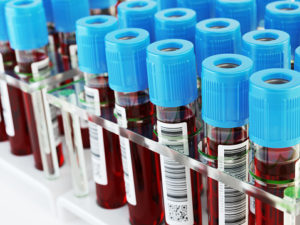A study found no difference between molecular markers of type 2 airway inflammation between eosinophilic asthma and eosinophilic chronic obstructive pulmonary disease (COPD). The study was published in Allergy.
To better understand the molecular basis of eosinophilia in this disease, researchers analyzed 96 patients with COPD, 84 with severe asthma, and 19 with non-obstructive airways disease (OAD; controls). Subsequently, the investigators assessed factors such as demographics, exacerbation, and disease impact. All patients were classified as eosinophilic using either sputum samples or blood count.
According to the results of the study, type 2 markers did not differ across the three groups except in hematopoietic prostaglandin D synthase (HPGDS) mRNA, which was highest in non-OAD controls and lowest in patients with COPD. Moreover, the researchers observed that interleukin (IL)-5 and IL-13 mRNA and prostaglandin D2 levels were notably increased in eosinophilic versus non-eosinophilic severe asthma but did not differ between eosinophilic COPD and eosinophilic severe asthma or non-eosinophilic COPD. The researchers noted of the results that HPGDS expression was higher in eosinophilic severe asthma compared with eosinophilic COPD, with similar results observed using sputum or blood samples.
The researchers concluded, “Molecular markers of type 2 airway inflammation do not differ between eosinophilic asthma and eosinophilic COPD; however, the relationship between eosinophilia and type 2 airway markers appears weaker in COPD than in severe asthma.”
Keywords: biomarker, cytokine, eosinophil, obstructive airways disease, prostaglandin, sputum





